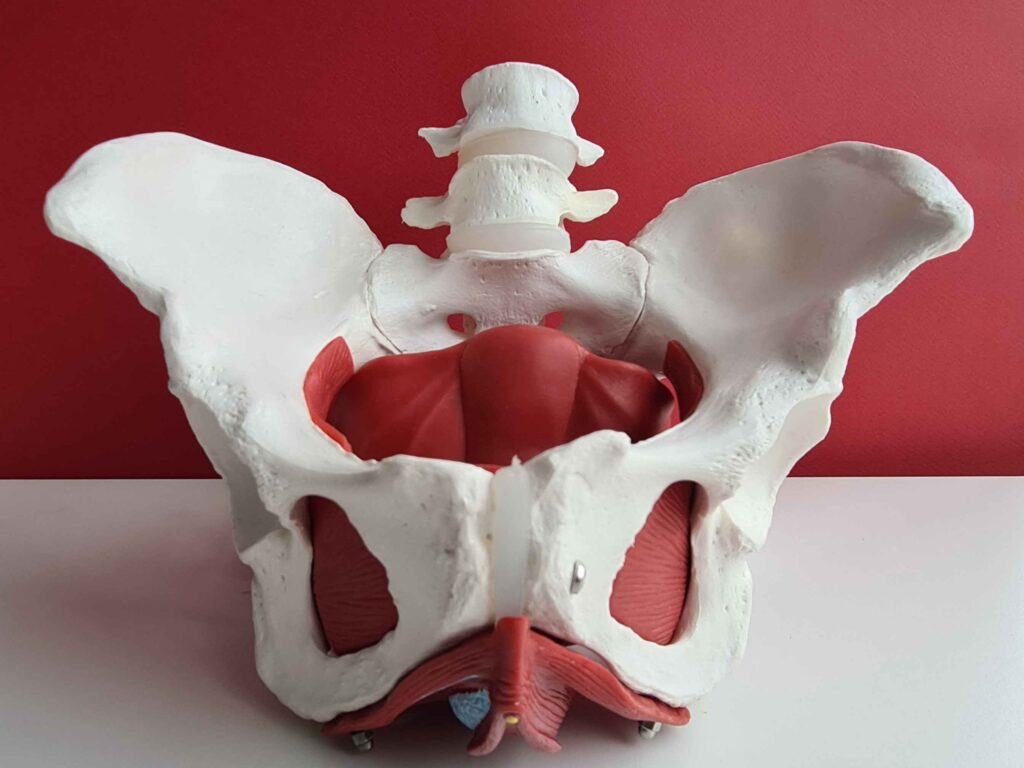Table of Contents
ToggleIntroduction: Why Is Pelvic Floor Health Important?
The pelvic floor is a group of essential muscles that support the bladder, bowel, and reproductive organs. These pelvic floor health directly influence sexual performance, playing a key role in arousal, orgasm, and control during intimacy.
Weak or tight pelvic floor muscles may lead to issues such as:
-
Reduced sexual sensitivity
-
Pain during intercourse
-
Erectile dysfunction or premature ejaculation in men
-
Urinary incontinence or loss of bladder control
Fortunately, pelvic floor health can be improved through Kegel exercises, physical therapy, and lifestyle changes—enhancing pleasure and confidence during intimacy.
The Role of the Pelvic Floor in Sexual Function
Enhancing Arousal and Sensation
Pelvic floor muscles improve blood flow to the genital area, increasing arousal and sensitivity.
-
In women, they support better vaginal muscle control, enhancing pleasure during intimacy.
-
In men, strong pelvic muscles support better erectile function and ejaculation control.
Boosting Orgasm
During orgasm, pelvic floor muscles contract rhythmically, intensifying the sensation.
Weakness in these muscles can lead to:
-
Difficulty reaching orgasm
-
Less intense or diminished orgasms
Strengthening the pelvic floor can help men control ejaculation and enhance orgasm intensity for women.
Preventing Sexual Disorders
-
In women: Weak pelvic floor muscles may cause vaginal laxity, discomfort during intercourse, or reduced sensation.
-
In men: Weakness may lead to erectile dysfunction or premature ejaculation due to poor support for erectile function.
Pelvic Floor Disorders and Their Impact on Sexual Health
Pelvic Floor Muscle Weakness
Can result in reduced sexual pleasure, weaker orgasms, or bladder control issues.
Common after pregnancy, childbirth, or menopause.
Pelvic Floor Muscle Tightness (Hypertonicity)
Excess tension in the muscles can lead to:
-
Pain during intercourse (dyspareunia)
-
Difficulty reaching orgasm
-
Erectile issues or pelvic pain in men
Pelvic Organ Prolapse
Occurs when pelvic floor muscles weaken, leading to the descent of the bladder, uterus, or rectum.
May cause discomfort during sex, incontinence, and lowered self-confidence.
Changes After Childbirth or Aging
-
During pregnancy and childbirth, pelvic muscles stretch, causing loss of strength and control.
-
With age, estrogen and testosterone levels decline, affecting muscle elasticity and sexual sensitivity.
How to Improve Pelvic Floor Health to Enhance Sexual Performance
Kegel Exercises to Strengthen Pelvic Floor Muscles
Improve muscle control, orgasm strength, and sexual performance.
How to perform Kegels:
-
Squeeze your pelvic floor muscles (as if trying to stop urination).
-
Hold for 3–5 seconds, then relax.
-
Repeat 10–15 times, 3 times per day.
Relaxation Techniques for Tight Muscles
Help release tension from pelvic muscles:
-
Yoga and pelvic stretching
-
Deep breathing and meditation
-
Perineal massage (especially for women experiencing pain during sex)
Pelvic Floor Physical Therapy
A physical therapist can assess muscle condition and create a tailored program to strengthen or relax them.
Ideal for those with pain, weakness, or muscle tension.
Adopting a Healthy Lifestyle to Support Pelvic Floor Strength
-
Maintaining a healthy weight reduces pressure on pelvic muscles.
-
Drinking water and eating fiber helps prevent constipation, which can stress the pelvic floor.
-
Limiting caffeine and alcohol, as they may irritate the bladder and weaken muscles.
Using Resistance Training Tools or Vaginal Weights (for Women)
Tools like vaginal cones or pelvic trainers can:
-
Strengthen vaginal muscles
-
Enhance sexual sensation and pleasure
-
Improve bladder control
When to Seek Medical Help
If you experience any of the following symptoms, consult a pelvic health specialist:
-
Pain during sex that doesn’t improve with lubricants
-
Urinary incontinence or bladder control issues
-
Difficulty achieving orgasm or reduced sensation
-
Chronic pelvic pain or discomfort
Conclusion
Pelvic floor muscles play a vital role in arousal, orgasm, and comfort during intimacy. Through:
-
Kegel exercises and relaxation techniques
-
Physical therapy and lifestyle improvements
-
Seeking professional help when needed
You can improve your sexual performance, boost self-confidence, and prevent future disorders.
Invest in your pelvic floor health and enjoy a more satisfying and confident sex life.

Suleiman Atieh, experienced pharmacist specializing in healthcare, patient wellness, safe medication practices, disease management, and supplement guidance.








